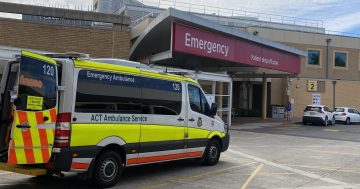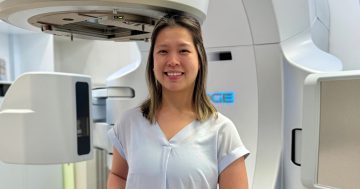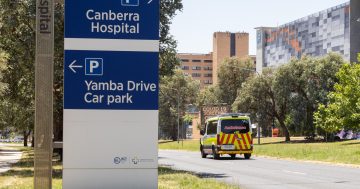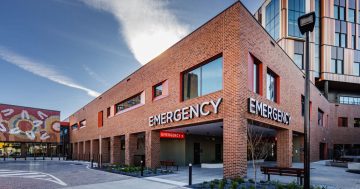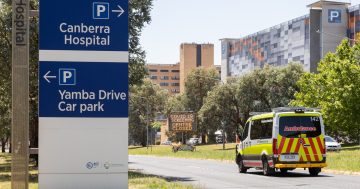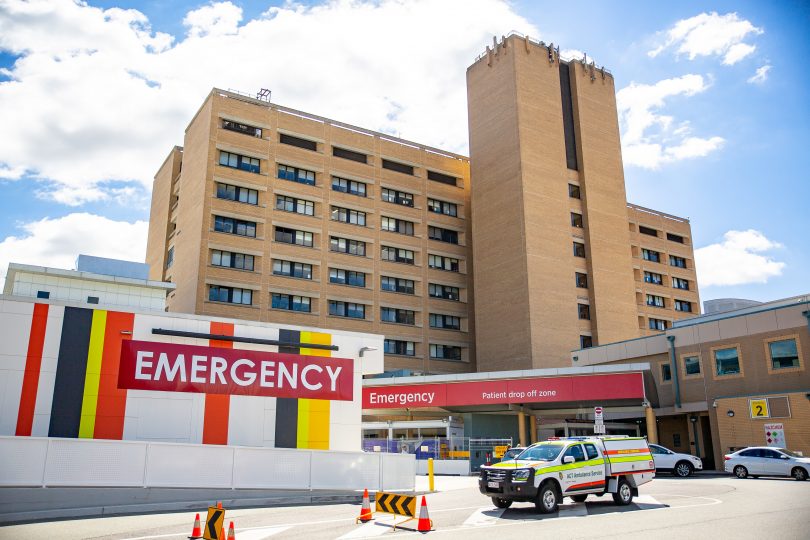
Canberra Hospital: overworked trainee doctors had little time to devote to study and training. Photo: File.
Canberra Health Services is confident an overhaul of doctor training and working conditions in Canberra’s public hospitals will remedy unacceptable pass rates.
CHS ordered an external review after exam results went backwards in 2018 and 2019, with pass rates of just 37 per cent in 2019 and 36 per cent the year before.
The year-old review, revealed after a journalist’s freedom of information request, exposed a dangerous workplace culture in which trainee doctors were overworked and subject to capricious roster and leave changes that left little time for training.
Trainee doctors reported high levels of burnout and low morale, as well as insufficient teaching contact including limited outpatient training and practice case opportunities.
They also said most of the training program was scheduled after hours.
The review found a delay in the appointment of a new ACT Network Director of Physician Education led to a breakdown in the training structure, a lack of mentoring and disengaged senior clinicians.
The review identified a lack of pride in the training program, poor communication between the training team and clinicians, no teaching champions, and no incentives or rewards for teaching, mentoring or examining.
Some of the review’s findings echoed that of the wider workplace culture review in Canberra’s hospitals and notes a period of instability and conflict preceding the decline in doctor training.
CHS has assured the public that patient care had not been compromised and that 38 of the 54 recommendations have been implemented including leave management plans, two hours of protected and guaranteed teaching time a week, trial exams, increased mentoring and greater involvement from senior clinicians.
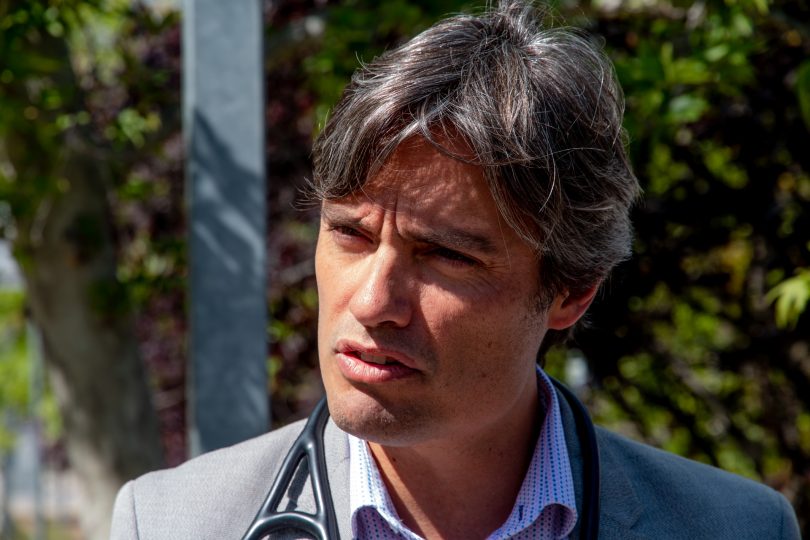
Dr Nick Coatsworth: ”I’ve come back to an improved culture, and if that’s not being felt by our physician trainees I personally want to know about it and act to fix that.” Photo: Dominic Giannini.
Executive director of medical services Dr Nick Coatsworth said the exam results were clearly unsatisfactory and the review’s recommendations were not unexpected.
He said Canberra’s hospitals had all the right ingredients to have excellent pass rates and continue to provide excellent care to patients.
”We want to be a preferred employer of excellent physician trainees but to have that we’re going to have to have several years of consistently improving exam results,” he said.
Dr Coatsworth said it was just not possible to study and work 150 hours a fortnight, as well it not being safe.
”If that happens we are in direct contact with that unit making sure that work is more equitably distributed,” he said of the safety net implemented to stop excessive work hours.
The review recommended more teaching staff and Dr Coatsworth said the number of staff required for the physician training program was being reviewed.
He said clinician engagement had improved with an increasing number of physicians actively involved in the exam process.
”Amongst all our physicians there is an expectation that they contribute to the teaching program at Canberra Hospital,” he said.
Dr Coatsworth said there had been significant cultural changes at the hospital, and frequent checks were being made to see how trainees were going.
”I’ve come back to an improved culture, and if that’s not being felt by our physician trainees I personally want to know about it and act to fix that,” he said.
Canberra’s trainee doctors have not yet sat their 2020 exams due to the pandemic, but will do so in coming months.













